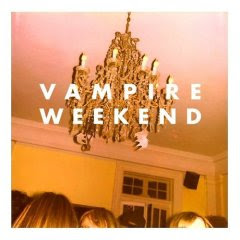Free HDtracks Album Promises Music Lovers the
“Ultimate Download Experience”
CD-quality audio lets HDtracks listeners “hear the difference”
New York City, May 20, 2008 – HDtracks.com, the new high-resolution digital music store founded by audiophile record label Chesky Records, today announced the limited availability of a free album download that encourages all listeners to “hear the HDtracks difference.”
“The HDtracks Ultimate Download Experience,” free to visitors to www.HDtracks.com who register with only an email address, offers eight spectacular audiophile-quality recordings across different genres, all hand-picked to prove just how great music downloads can sound. Those who download The Ultimate Download Experience will also receive a promotional code for 20% off their next HDtracks album or multi-album purchase.
HDtrack is unique among digital music stores for its combination of CD-quality music files unencumbered by digital rights management (DRM)*, the ability to download in any of three file types to match most playback devices, and a reliable, easy-to-use interface that makes browsing and downloading a pleasure. The site features thousands of artists representing 60 of the world’s best independent record labels, and all albums are priced at $11.98 and come complete with PDF liner notes (a first among digital music sites). Tracks may be downloaded as CD-quality uncompressed AIFF files or lossless FLAC files, or MP3 files ripped at 320 kilobits-per-second (kbps) — some 2½-times the rate of typical music-store downloads. Ultra-high-resolution 96kHz/24-bit downloads are planned as well.
HDtracks features more than 60 independent record labels including respected audiophile releases
from Chesky, ASV, Sunnyside, Evidence, DRG, Hyena, MilesHigh and more.
The ever expanding library also now includes titles from The Orchard and IOTA distribution
companies. “Musicians and sound engineers create incredible performances and amazing, lifelike recordings, only to have people download their work at 128 kbps from the popular music stores,” said HDtracks co-founder David Chesky. “This completely destroys the nuance of the recording and often introduces audible distortion. Our free “Ultimate Download Experience” album should prove to listeners once-and-for all that they can hear the difference between a CD-quality or high bit-rate file and a conventional download, even on an iPod®.”
About HDtracks
Founded by David and Norman Chesky of the respected audiophile-record label Chesky Records, HDtracks is a high-quality music download service offering a diverse catalog of independent music from around the world. HDtracks does not believe in DRM, and as a result, offers a selection of unencrypted files that play on any computer or portable device. HDtracks recognizes that while there are significant benefits to accessing music at the touch of a button in today’s computer age, preserving sound quality and the visceral experience of the live music performance should remain a priority. The HDtracks mission is to deliver the whole package: world-class music, unrivaled sound, files that play in any environment, and liner notes that enhance appreciation of the artist and album.
HDtracks Ultimate Download Experience
Livingston Taylor “Our Turn To Dance” (Chesky Records)
David Johansen and the Harry Smiths “Well, I've Been to Memphis” (Chesky)
Earl Wild “Mexican Hat Dance” (Ivory Classic)
Holly Cole “Larger Than Life” (Koch Records)
Mike Garson “Rumble” (Reference Recordings)
Koko Taylor “Can't Let Go” (Alligator)
The Minnesota Orchestra (Conductor: Eiji Oue) “Baba Yaga, from Pictures at an Exhibition” (Reference Recordings)
Brio “Una Tarde de Verano” (Dorian)
* Digital Rights Management encoding, or DRM, is a technology that limits the usage of digital media. HDTracks does not employ this technology, as the company believes that once its customers purchase music from its site, they have the right to play it wherever they wish on any device they choose.














